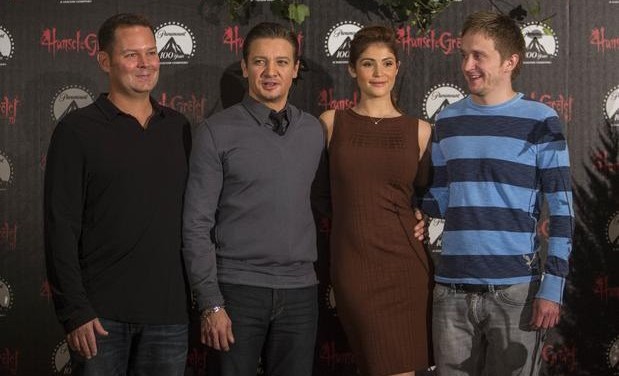
We recently had the opportunity to interview the director of Hansel & Gretel: Witch Hunters, Tommy Wirkola, and its producer, Kevin Messick, as part of a roundtable media event. We got in pretty much all of our questions, and received some great insight into the making of the film. Before reading the interview below, here is a quick background on the two:
Tommy Wirkola (Far Right) was born in Alta, Norway, but studied film at Bond University here in Australia. He was first widely recognised on the global film-making scene for his 2009 zombie-comedy Dead Snow. His deft blending of comedy and horror, very much in the vein of Sam Raimi – who Wirkola sites as an inspiration – got him noticed by some great Hollywood producers. Kevin Messick was one such producer. Now, Tommy has seen a decade-long dream come to fruition with Hansel & Gretel: Witch Hunters.
Kevin Messick (Far Left) is one of four producing partners at Gary Sanchez Productions, alongside Will Ferrell, Adam McKay and Chris Henchy. He has worked on many projects, including the hilarious The Other Guys (2010), Casa de mi Padre (2012), this month’s release Jack Reacher, and now Hansel & Gretel: Witch Hunters. Upon being pitched the idea for the film, Messick was immediately keen to get this project made and the rest is now history.
Without further ado, enjoy the interview!
Thanks for this opportunity guys. Now, Kevin, was it something about Dead Snow in particular that attracted you to the prospect of working with Tommy?
Messick: It was awesome and I had no idea what to expect. I was at that Sundance Film Festival with a small drama that a buddy of mine had written and directed, and he was the one that was like “there’s this crazy Nazi zombie film, it’s a midnight, c’mon!” and so he kind of dragged me along to it. And it was sold out; people were fighting trying to get in! And it played like a concert film; the audience was laughing, screaming, talking back to the screen – it was just a really fun ride! It reminded me of those early Sam Raimi films. So I was coming back to L.A. and was just starting with Adam McKay and Will Ferrell as a producer for their company and tracked down Tommy through his agent, met him and he told us this idea of what he wanted to make next…
Wirkola: Well I told you five ideas! But, I saved this one for last…
Messick: Yeah, on the way out the door – “got anything else?” (Laughter)
Wirkola: I had a friend do some early artwork to go along with it too. I was just warming them up with the others.
Messick: We sold it within a week to Paramount and started working on the script right away. From a timeline perspective, we look back and it’s still pretty remarkable – two years later we were in Germany in pre-production building Augsburg.
It’s rare to hear about a quick turnaround like that…
Wirkola: It was a lot of… [Searching for the right word in English]
Messick: Perspiration? …Sweat, blood, tears?
Wirkola: No, when things just fall into place. Timing wise, there were rumours of other fairy-tale movies being made and Paramount wanted to be first. We ended up shooting first, but actually releasing last, which I think worked to our advantage. It was a crazy process. I still think, to this day, “how the hell did this movie get made?î Because it’s not a classical studio movie. It’s very R-rated, it’s got a mean sense of humour that you either love or hate and it took balls from Paramount to green-light it.
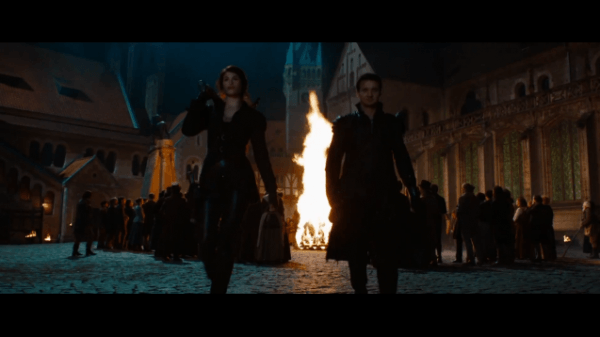
So, what do you think it was that made the initial pitch so attractive to studios?
Wirkola: I think it’s strong because everyone who has heard the fairy-tale, hopefully like me, has always wondered “what’s happened to these characters?” because the fairy-tale leaves them at such a fun place. They are left in the forest by their parents to die and they get trapped by a witch who tries to eat them but they end up burning her alive. For two young kids…I mean, that’s a great first act for any film, and it leaves the characters in such a great place. So I was just, hopefully, spinning on the curiosity of what happened to these two kids.
Messick: They grow up with a big beef! (Laughter)
Wirkola: I think it’s fun if you can take something everybody has a relationship to and put a fun little spin on it that hopefully gets everyone curious and excited.
How important was it for you to cast, for the majority, Scandinavian/German actors?
Wirkola: It was really important to me, and also to shoot it in Europe – I pushed very hard for that because I didn’t want it to feel like an American or Americanised world. I wanted Hansel and Gretel to have an American accent because I wanted them to feel like the outsiders and also to feel a little bit more modern compared to the rest of the film’s world. But yeah, there are Germans, Finish, Danish, Swedish and a lot of Norwegians actually.
Messick: It’s very uncommon for a big studio film, and because we were shooting over there, there was a great talent pool that we were able to pull from locally, which was also good for the film financially. But, weirdly enough, as with Famke and Peter Stormare, who also have European roots, the sum total of the cast does have this great European vibe that hopefully lends itself to the fairy-tale world we created.
Wirkola: And being from Norway, I got to use a lot of, who are considered great Norwegian actors in tiny parts, because I thought it’d be fun. Bj¯rn Sundquist, who plays Jackson, is considered to be Norway’s answer to Jack Nicholson. He’s won tons of awards and is a very serious actor, a great person…
Messick: And in our movie, he blows his head off. (Laughter)
Wirkola: He just thought it’d be fun to do something crazy like this. He told me on set, “you know Tommy, these last 20 years I’ve just been sitting and talking in movies, and finally I get to do some action, I get to kick ass!î So it was fun, and I’m really happy and proud that I got to use so many Norwegians and Scandinavians, and Pihla Viitala, who plays Mina – we just, by chance, found her in a German casting office and saw a tape of her and was blown away. She’s beautiful and strong and now hopefully she can use this to do something more in Hollywood.
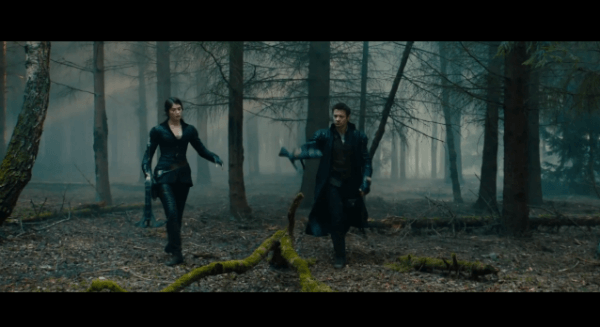
We had heard that Noomi Rapace was tied to the film, and actually that the role of Gretel may have been written with her in mind. I don’t know where that came from…
Wirkola: It actually says that on IMDB, did you see that? [Directed at Kevin]. It came from Jeremy, that’s the funny part…
Messick: Yeah, it was at the Venice Film Festival.
Wirkola: Yeah, and I know Noomi a little bit and she was someone that we talked to for a while, but it just never came into play. She went on to do Prometheus, and then we found Gemma after that. And as soon as we saw Gemma, there was nobody else.
We loved the film, but had this not been green-lit, would you have put this out in some other format – maybe a book or a comic?
Wirkola: Maybe a comic book would have been the way to go then. I think it would have translated really nicely to that actually. I also thought for a while, if I couldn’t get it done in Hollywood maybe I could get it made back in Norway, but I don’t think I would have ever gotten the budget for that. You know, it’s funny when we pitched it, we pitched it as a very tiny movie, and eventually it grew bigger and bigger. The studio really believed it and we ended up with a pretty decent sized movie.
Messick: But we had a back-up plan; we were ready to develop something else as a movie, but now that will be the next one.
Wirkola: A time-travel western (Laughter)
Could this possibly be a franchise? We’ve heard talks about that possibility already…
Messick: Yeah, it’s an obvious question that does come up, and we’ll see how it does. There are so many things that need to fall into place. We’re just happy that this film turned out as well as it did. If the conversation comes up, it’s a fun world and we loved the gang that we made it with – the actors I think would all have a good time.
Wirkola: It’s certainly a fun world to do more stuff with. And now that we’ve established the main characters of the world, we have big opportunities. But it’s up to the people and if they want to see more.
Messick: But for the guys I work with, Adam and Will, we just want to make another movie with Tommy. So if the conversation of a sequel lingers, we have other plans for other fun movies, hopefully that we can make right away.
And if it looked like it was going to happen, do you have any ideas about where the sequel would go, or would you have to sit down and really hash it out?
Wirkola: Um, I have some loose ideas, but I have some things in Norway I might do and some things in the U.S. I might do…it’s been a long time since I’ve actually directed something so I want to get back into now because this was a long post-production process. And hopefully that’s soon.
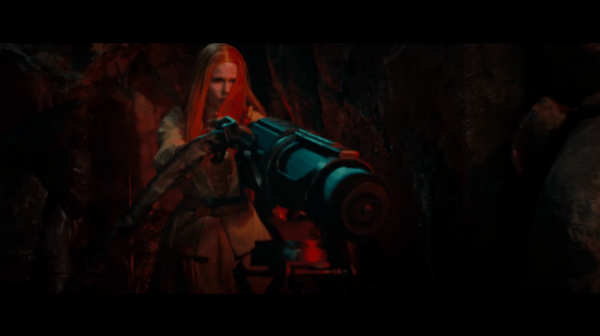
With the direction of the action sequences in the movie, we noticed it went and was shot very smoothly, if that’s the right word to use…
Wirkola: Yeah, the fight choreographer Sam Hargrave and 2nd unit director David Leitch, who’s done a lot of big movies, and I just clicked straight away and knew exactly what we wanted to do. I wanted to go in more of a classical route with the action, and not use shaky cam as much as it’s used these days and go back to cutting, getting tempo through the cutting and storyboarding and choreographing the hell out of it. I did want a slight retro feel to the action too.
Messick: It was all well planned out and it was pretty fun watching him and Dave Leitch work. He had a big warehouse in Berlin and all of the stuntmen and women would take the sequences that Tommy had storyboarded and would literally bring them to life – they filmed them as these video visualisations and cut them together with blood effects. Dave and Tommy would then literally go with the stuntmen in sweats with cardboard boxes and prop guns and design the sequences so that by the time it got to the day with the actors, they were pretty well honed.
Wirkola: Yeah, and again it’s about collaboration and I was so lucky that I got to work with these actors…they just loved the idea of doing a fun film and I think a lot of people were like “we can do what we want!”, of course within certain parameters, but they just went crazy, along with me!
So in terms of the sets, were the towns used real towns? How much had to be built?
Wirkola: We built a town on the backlot in Babelsberg, outside and…
Messick: There was only one real town, where they walk away from the funeral pyre, which is a town called Braunschweig.
Wirkola: But other than that we really went out into locations in the forests of Berlin and outside of Berlin and we built sets.
Messick: We built the farmhouse in the forest, we built the candy house in the forest, we built the tall witches house in the forest…
Wirkola: It’s just because I think, especially when you’re doing a fairy-tale movie with fantastical creatures, you have to ground it wherever you can. And I wanted to do that amongst nature and those surroundings. The exterior set we had to build was the stone circle at the end because it was impossible to find the right place.
Messick: We did look, and we scouted this spot in Saxon that had these big, craggy peaks that ended up being the basis for its look.
Wirkola: Yeah, it just would have been too hard. As much as I can, I will also use practical stuff and do location shoots. I think, unfortunately, so much these days filmmakers use CGI when they don’t have to. I think CGI is best only when it’s used to polish what you’ve captured on camera. For me, no matter how perfect CGI is…and that’s the problem with it for me, I think in general it’s too perfect. It’s too glossy, too clean and I think it’s something in your gut or in the back of your head that you feel it somehow as less dangerous. Obviously, great examples of CGI are Gollum in Lord of the Rings, but in general it’s relied on too much.
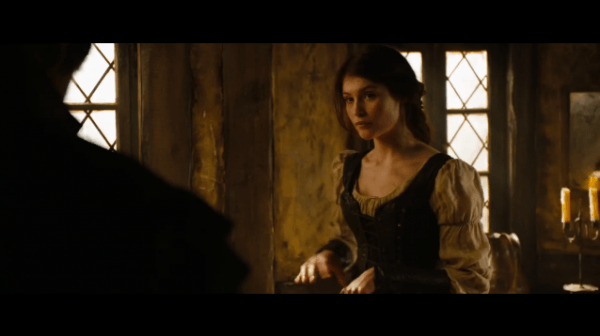
Along with Dead Snow and now this, is this comedy-horror genre work becoming your niche now and do you see yourself branching out?
Wirkola: Well, so far! (Laughter) Well, we’re planning on doing Dead Snow 2, hopefully soon, so I won’t be going away from that. But of course I want to do some other stuff as well. I think there will always be that sense of humour in my work, um…
Messick: I think it’s an attitude. The action script that he wrote for us, another project that he wrote for us at Paramount, whatever genre he goes into there’s this attitude and point of view to it.
Wirkola: Yeah, I would certainly like to branch out. Now, I don’t see myself doing a musical or something like that in the near future, but I am attached to a couple projects in Scandinavia that might be a little outside what I normally do. But, I’m not planning on leaving this stuff. I love the mix of genres, and when I was growing up, it was seeing Peter Jackson and Sam Raimi’s earlier stuff that was an eye-opener for me…because I was a horror geek growing up and I watched ‘Friday the 13th’, ‘Nightmare on Elm Street’ and ‘Halloween’. And sometimes all these movies were scary and extremely gory, but it was somehow still a fun ride to me. I was blown away by that – ‘Braindead’ especially, I remember fondly. So that’s something I truly love and hope to continue doing.
Okay, finally, we must ask…was the Candy House made of real candy?!
Wirkola: Just a very tiny part of it! The door had some little candy parts in it, and one of the hanging icicles. The rest was probably very poisonous and you would have died if you tried to eat it. The kids had very strict directions! (Laughter)
Well people should look forward to Hansel & Gretel: Witch Hunters’ nationwide release February 7th. Awesome, thank you both for the interview!
Messick & Wirkola: Thank you guys!

